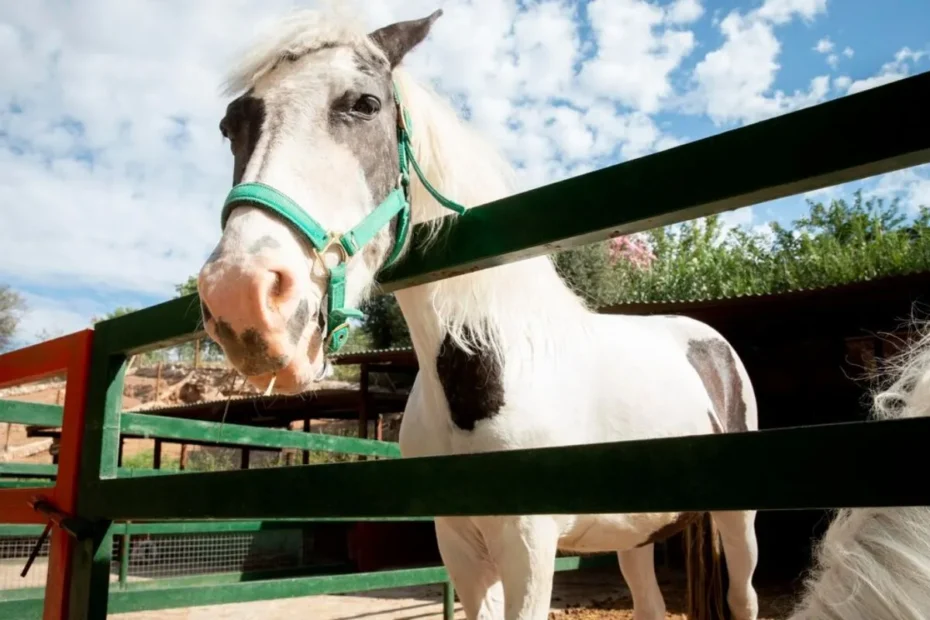The Role of Probiotics in Horse Nutrition has been increasingly recognized for its benefits on equine gut health. Probiotics are live microorganisms that promote digestive health when administered in appropriate amounts.
Proper horse nutrition plays a vital role in maintaining overall health and performance. This article explores how probiotics can enhance digestion and immune response in horses.
Understanding Probiotics in Horse Nutrition
Probiotics are beneficial bacteria that balance the gut flora. They essentially supplement the natural microbiota in the digestive tract of horses.
Horses rely heavily on their gut bacteria for nutrient absorption. Introducing probiotics can improve the efficiency of this process.
The specific strains of probiotics used in equine nutrition include Lactobacillus and Bifidobacterium. These strains aid in breaking down fibrous feeds.
The Impact on Digestion
Probiotics play a crucial role in enhancing digestion. They help break down complex carbohydrates and fibers, essential for a horse’s diet.
The fermentation process facilitated by probiotics assists in the production of volatile fatty acids. These are crucial energy sources for horses.
Overall, improved digestion translates to better nutrient absorption, leading to a healthier horse with more energy.
Factors Influencing Digestive Health
Various factors can influence a horse’s digestive health, including diet, stress, and antibiotics. Probiotics can help mitigate some negative impacts.
Antibiotics can disrupt gut flora, leading to digestive issues. Probiotic supplements can restore the balance.
Stressful conditions, such as transport or competition, can also affect gut health. Probiotics provide stability to the digestive system during such times.
Boosting Equine Immune System
The immune system greatly benefits from a healthy gut microbiome, and probiotics play an essential role in this synergy. By promoting a balanced gut flora, probiotics can enhance the body’s natural defenses, reducing the incidence of infections and inflammations. This not only improves overall health but also contributes to better performance and well-being.
Additionally, a well-functioning immune system translates to fewer veterinary visits and reduced healthcare costs, making it a cost-effective strategy for long-term health management. Probiotics help maintain a stable and robust immune response, ensuring that the horse is better equipped to fight off illnesses and recover quickly from any health issues.
Incorporating probiotics into your horse’s diet provides multiple benefits, from improved gut health to enhanced immune function. Consistent use and careful monitoring can lead to a healthier, more resilient horse, reducing the need for medical interventions and promoting overall well-being.
Performance Advantages
A well-nourished horse performs better in terms of stamina, strength, and overall agility. Probiotics are crucial to achieving this.
Enhanced nutrient absorption means muscles receive the energy they need. This leads to improved athletic performance.
Horses with a balanced gut microbiome also exhibit better recovery times post-exercise, reducing the risk of fatigue-related injuries.
Choosing the Right Probiotic Supplement
When selecting a probiotic supplement for horses, it is vital to choose products that are specifically designed for equine use.
Look for supplements containing strains like Lactobacillus acidophilus and Bifidobacterium bifidum. These are proven effective for horses.
Consulting a veterinarian can provide insights into the best probiotic supplements tailored to individual horse needs.
Practical Applications and Best Practices
Integrating probiotics into a horse’s diet requires careful planning, starting with a gradual introduction to allow the gut to adjust. Monitoring the horse’s response to probiotics is crucial, observing changes in appetite, behavior, and overall health. This ensures that the probiotics are having the desired effect and not causing any adverse reactions.
Consistency is key, so regularly provide probiotics as recommended to maintain a balanced gut microbiome and continuous health benefits. By sticking to a regular schedule, you ensure that the beneficial bacteria in the gut remain at optimal levels, promoting better digestion and immune function.
Incorporating probiotics into the diet helps improve overall health and well-being. Regular monitoring and adjustments based on the horse’s response are essential, making this approach a vital part of a comprehensive nutritional plan. This careful and consistent integration leads to a healthier and more resilient horse.
Common Probiotic-Rich Foods
Probiotic supplements are not the only sources of beneficial bacteria. Some natural foods can also contribute.
Fermented feeds like silage, yogurt, and kefir can be excellent additions to a horse’s diet. These are rich in probiotics.
- Silage: Fermented forage that improves gut health.
- Yogurt: Contains live cultures beneficial for digestion.
- Kefir: Fermented milk with a variety of probiotic strains.
Observing the Benefits
Frequent observation of the horse’s health indicators can help assess the effectiveness of probiotics. Improved coat shine and fecal consistency are positive signs.
Increased energy levels and better performance during activities are also indicative of the benefits of probiotics.
If any adverse reactions are observed, consult a veterinarian to ensure the appropriate use of probiotics.
Long-Term Effects
Consistent probiotic use can yield long-term health benefits, contributing to sustained digestive health and immune functionality. Over time, horses with balanced gut microbiomes show improved weight maintenance and reduced gastrointestinal disorders. This longevity of benefits underlines the importance of probiotics as part of a comprehensive nutrition plan.
Incorporating probiotics into a horse’s diet supports a healthy gut flora, which plays a crucial role in nutrient absorption and overall health. Regular probiotic supplementation can help prevent common digestive issues, ensuring that your horse maintains a stable and healthy digestive system.
By making probiotics a regular part of your horse’s nutrition plan, you are investing in their long-term health and well-being. This proactive approach helps to promote a strong immune system, better weight management, and enhanced overall health, leading to a happier and more resilient horse.
Wrap-Up: Enhancing Horse Health
The Role of Probiotics in Horse Nutrition is vital for maintaining optimal gut health and overall performance. These beneficial bacteria support better digestion and a robust immune system.
Choosing the right probiotic supplement tailored to equine needs ensures targeted benefits. Consistent and monitored use of probiotics translates to long-term health gains.
Horses with balanced gut microbiomes exhibit improved performance, recovery, and general well-being. Implementing probiotics can be a game-changer in equine nutrition.
Stay informed about the latest in horse nutrition and make probiotic supplementation a staple for a healthier, happier horse.
Frequently Asked Questions
What are probiotics?
Probiotics are live beneficial bacteria that, when administered in the right amounts, support digestive health.
How do probiotics improve horse digestion?
Probiotics help break down fibrous feeds, enhancing nutrient absorption and energy production.
Can probiotics boost my horse’s immune system?
Yes, a balanced gut flora enhanced by probiotics supports a stronger immune response.
Which probiotic strains are effective for horses?
Lactobacillus acidophilus and Bifidobacterium bifidum are commonly used effective strains.
Are there natural probiotic food options for horses?
Yes, fermented foods like silage, yogurt, and kefir can provide natural probiotics beneficial for horses.

